Enslaved Peoples in African Societies Before the Transatlantic Slave Trade
Share
Breaking News!
Today's news and culture by Black and other reporters in the Black and mainstream media.
Ways to Support ABHM?
Scholar-Griot: Rebecca Allyson Schnabel, M.S.
“Slavery existed in Africa, but it was not the same type of slavery that the Europeans introduced... A slave might be enslaved in order to pay off a debt or pay for a crime. Slaves in Africa lost the protection of their family and their place in society through enslavement. But eventually they or their children might become part of their master’s family and become free. This was unlike chattel slavery, in which enslaved Africans were slaves for life, as were their children and grandchildren.” PortBristol Museum
How was African slavery different from slavery commonly practiced in the Americas?
Slavery in Africa originated as the rewards of war and a punishment for criminals. People were not commonly born into slavery. Unlike in the Americas, Slavery was not automatically passed from parents to children. People enslaved in African societies often gained freedom before the end of their lives. At times they even became equal family members to those who once enslaved them. Chattel slavery regards humans as “a moveable article of personal property,” like to a commodity to be used up or traded away. African people abducted by Europeans were considered “property [that] could be bought, sold, traded or inherited [as well as] abused, branded, bred, exploited or killed” as their masters saw fit (Fight Slavery Now, 2015.) Whereas those enslaved in African societies were still seen and valued as human beings.
Slavery in Africa before the Europeans
People with limited freedom were found throughout African societies for thousands of years prior to the Transatlantic Slave Trade. An example being the working peoples of Egypt and Nubia. Referred to as slaves, scholars consider the people who built the Great Pyramids of Giza similar to indentured servants or serfs. This means these enslaved individuals were most likely compensated for their work. This would have also given them social mobility that allowed for enslaved people in Africa to eventually find a place within the society they served. People could escape the bonds of slavery to become equals within the general population.
Systems of slavery have varied throughout history. Pre-Captivity African people, like all other people across the globe lived within class-based societies. Through war, debt, and crime people lost their basic rights of freedom. However, slavery in Africa before foreign enslavement was drastically different from the Chattel Slavery practiced by Europeans in modern history.
Before the Transatlantic Slave Trade, several practices were in place to protect those even in slave status. The spread of Islam across Northern Africa both reinforced the institution of slavery, while at the same time restricting those who were defined as slaves. Free Muslims regardless of race could not be enslaved. However, a slave’s conversion to Islam did not guarantee freedom. Although it lasted over 13 centuries, the Trans-Saharan Slave Trade organized by various Arab nations remains understudied by historians today (Gakunzi, 2018).
“...the Arab slave trade has affected more than 17 million people. In the Saharan region alone, more than nine million African captives were deported and two million died on the roads.” David Gakunzi, “The Arab-Muslim Slave Trade: Lifting the Taboo.”
More currently some African countries have begun to examine their roles within the Arab Slave Trade. Pictured below is a monument in Tanzania on the island of Zanzibar commemorating the historic slave markets. Zanzibar is known as the spice capital of the world and historically a leader of Indian Ocean trade. Here visitors can take tours through tiny, dirty historic slave holding corridors. On these tours, guides discuss the destructive impact of the Arab Slave Trade on Eastern African societies. David Gakunzi, “The Arab-Muslim Slave Trade: Lifting the Taboo.”
Did some Africans participate in the European Slave Trade?
Slavers came from Europe with the promise of foreign goods in exchange for people. At first several African empires, kingdoms, and nations helped the European traders. They traded away captured enemies for European and Asian supplies. However, as the Europeans’ demands grew in number, African leaders began to refuse sending away their people. European traders bullied the local people into helping them maintain the slave trade by threat of violence.
One warrior who would not be intimidated was Queen Ana Nzinga (1583-1663) of Ndongo and Matamba (modern day Angola). Her forefathers worked to appease the Portuguese invaders who requested humans for trade. As a princess, Nzinga served as a diplomat to Portugal. She was able to establish a peace treaty with the Europeans, limiting the numbers of required people to be traded for slavery. Once becoming Queen, she rejected the Portuguese’s demands. Queen Nzinga spent 40 years fighting for the security of her people against the Portuguese. She is remembered as an inspiring military leader. Living into her 80s, Queen Nzinga never surrendered her power. She is one example of an African leader who resisted the roots of colonization and slavery.
For further details about Queen Nzinga’s life, check out our exhibit on African Women: Leaders and Warriors, and other reference material such as The History Chick’s Podcast.
Does African slavery justify the enslavement of Africans in the Americas by Europeans?
No slave system should be considered the lesser of two evils. Enslaving fellow humans is a malicious practice, unacceptable in every form and variation. However, it is important to realize the Transatlantic Slave Trade as a system was unlike anything the world had witnessed before. No group had so severally dominated over another population, plundering the young resources of human strength and intellect like the European slave traders did to the African people. That is until current genocides such as Hitler’s Holocaust and Stalin’s Gulags. Even these well-known modern atrocities do not come close to the number of lives lost to slavery and the black holocaust. Slavery stretches back to the roots of mankind varying in degree and severity throughout history, but none had ever been as oppressive as the European Slave Trade.
Sources
Boddy-Evans, Alistair. “Types of Slavery in Africa and the World Today.” ThoughtCo. ThoughtCo, June 20, 2019.
“Chattel.” Dictionary.com. 2019.
“Chattel Slavery.” Fight Slavery Now! December 15, 2015.
“Episode 80: Queen Nzinga.” The History Chicks, 14 Jan. 2019,
“EXPLORE THE DISPERSAL OF ENSLAVED AFRICANS ACROSS THE ATLANTIC WORLD.” Slave Voyages.
Gakunzi, David. “The Arab-Muslim Slave Trade: Lifting the Taboo." Jerusalem Center for Public Affairs. Last modified September 3, 2018.
Manning, P. "Slavery in Africa." Africana: The Encyclopedia of the African and African American Experience, Second Edition, 2005, Africana: The Encyclopedia of the African and African American Experience, Second Edition.
Enslaved People PortCities Bristol.
"Slavery in Africa." African Repository and Colonial Journal (1825-1849) 5, no. 7 (1829): 208.
Rebecca Schnabel is a graduate of UW-Milwaukee’s Masters of Public History and Museum Studies Certificate programs. She strives to cultivate a sense of community through engaging endeavors that connect history with the present, particularly through empowering the general public to apply their own agency while exploring exhibitions on social justice. Rebecca’s passion does not reside in one specific historical era or geographic location, but instead in illuminating underrepresented histories. Her specialties include interpretation, collections management, and exhibit design.
Comments Are Welcome
Note: We moderate submissions in order to create a space for meaningful dialogue, a space where museum visitors – adults and youth –– can exchange informed, thoughtful, and relevant comments that add value to our exhibits.
Racial slurs, personal attacks, obscenity, profanity, and SHOUTING do not meet the above standard. Such comments are posted in the exhibit Hateful Speech. Commercial promotions, impersonations, and incoherent comments likewise fail to meet our goals, so will not be posted. Submissions longer than 120 words will be shortened.
See our full Comments Policy here.









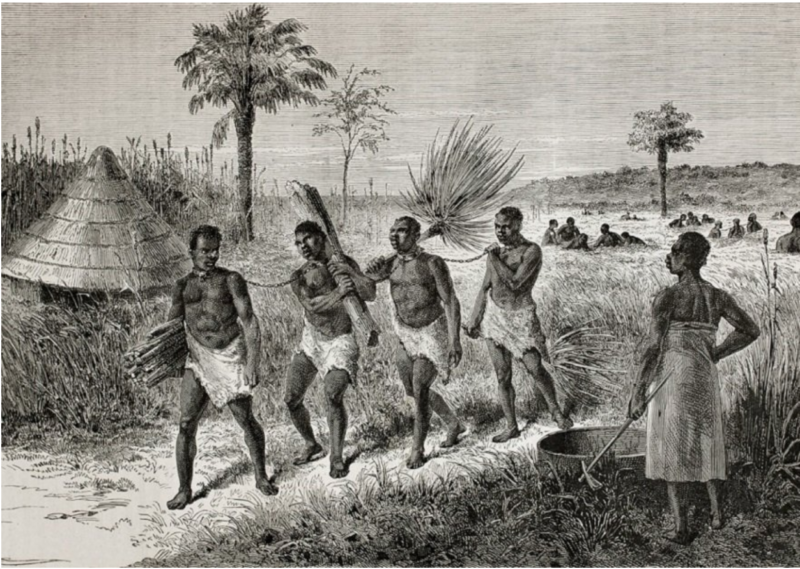
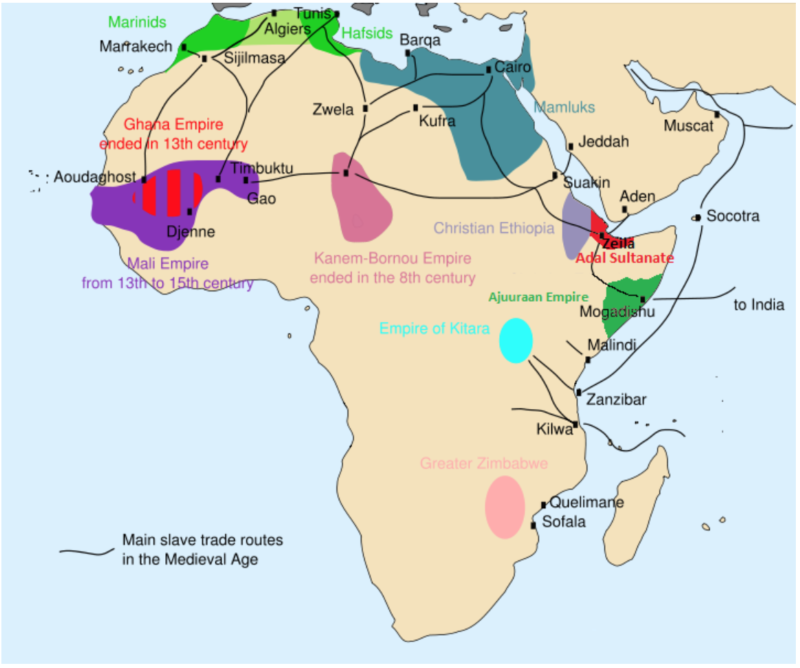
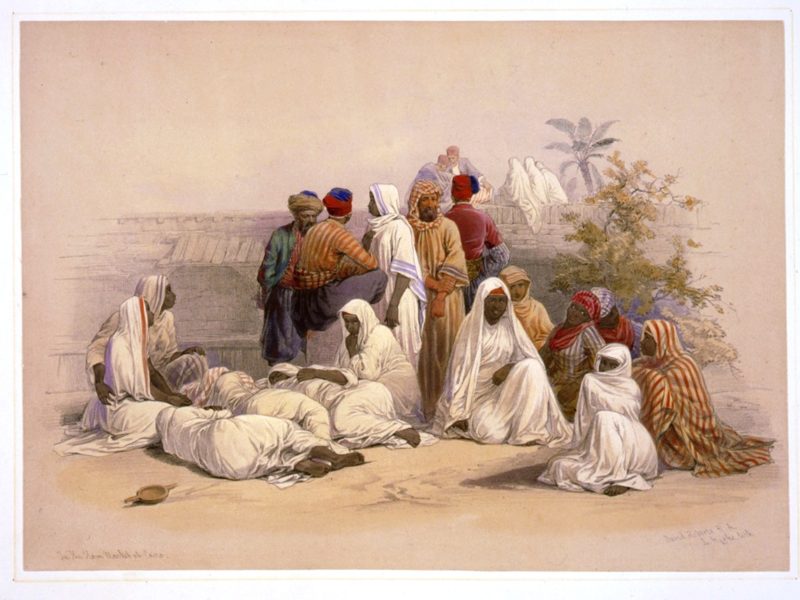
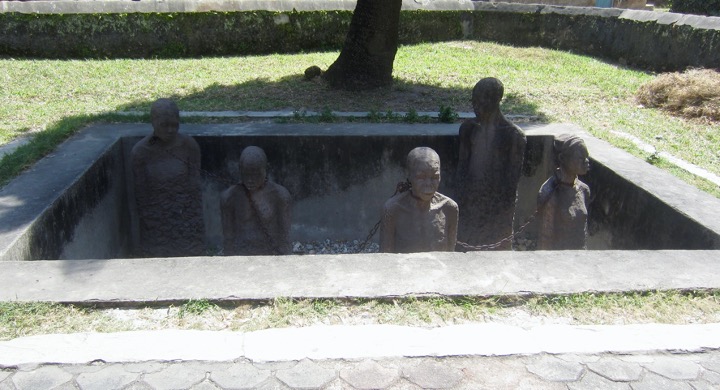
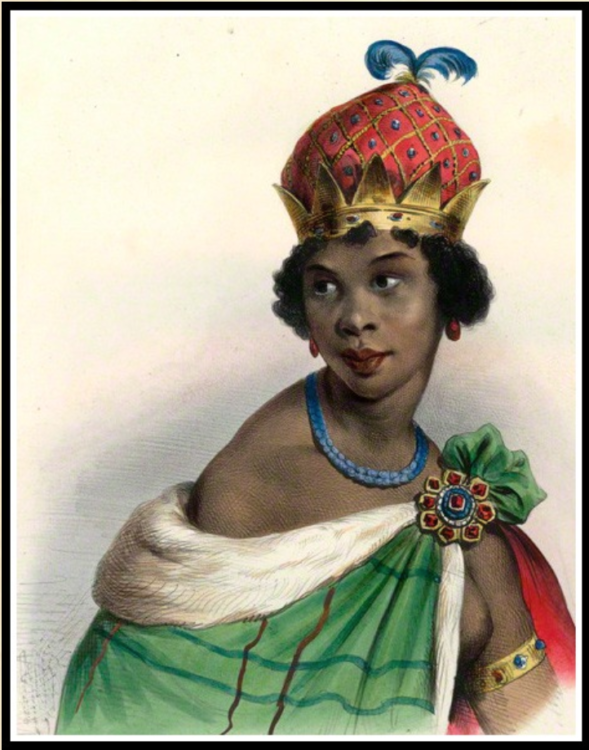
The exhibit was really interesting, now knowing more about the Africa history, i ponder about the actually economic and social situation of the continent. No to oppression of the human being in any of its forms! Africa dont give up!
[…] https://www.abhmuseum.org/enslaved-peoples-in-african-societies-before-the-transatlantic-slave-trade… […]